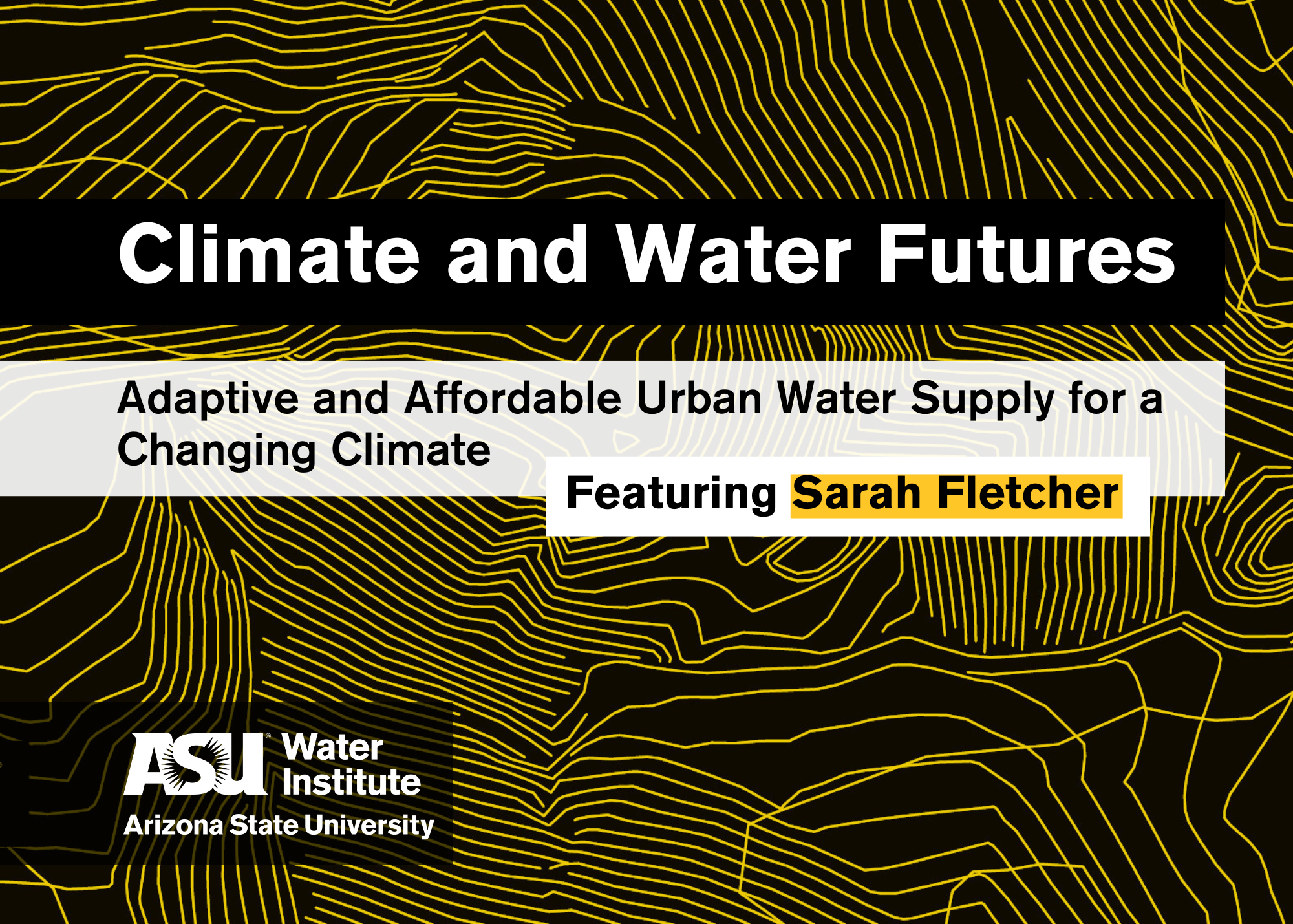Climate and Water Futures: Adaptive and Affordable Urban Water Supply for a Changing Climate

Event description
- Academic events
- Free
- Science
- Sustainability
About the series
Climate variability and change have emerged as critical challenges for water systems around the world. Much of the academic effort is directed at producing projections for water availability and floods and their potential impacts for the 2030-2100 period based on projected emission scenarios. However, considerable uncertainty and significant methodological biases plague these projections, limiting their utility.
The seminar series will seek to highlight what can be understood and projected in the near and longer-term based on our understanding of theoretical climate dynamics, the large-scale features of the organization of the ocean and climate that produce persistent regimes of extreme climate, inferences from paleoclimate data, IPCC style projections, and modern machine learning/AI tools. The series will also highlight some of the responses to climate extremes and climate change effects on, for example, water quality, scarcity, access, and agricultural availability, which impact nations and communities differently.
Learn more about upcoming events in this series!
About the talk
Climate change threatens water security in cities worldwide, necessitating widespread adaptation measures. At urban planning scales, climate change impacts on the water cycle are deeply uncertain, with 40% of the earth facing uncertainty even in the direction of precipitation change. Traditional approaches to water infrastructure planning under uncertainty, which rely on large projects and safety factors, carry high economic and environmental costs. Under-resourced communities face the greatest risk – from both water insecurity and the burden of costly adaptation measures. This talk will first assess the potential for adaptive infrastructure planning, in which planners develop infrastructure incrementally if-and-when needed, to enable water reliability in a changing climate with less infrastructure and lower cost. Second, it will present approaches to quantify and mitigate the impact of climate change on affordable water access for low-income urban households. This talk will present case studies in California aimed at developing local solutions in partnership with planners as well as theoretical work aimed at scaling solutions across locations. It will highlight collaborations in law, economics, public policy, climate science, environmental justice, and public health, reflecting the multidisciplinary approach needed to develop tractable climate solutions.
About the speaker
Sarah Fletcher is an Assistant Professor of Civil and Environmental Engineering and Lee and Kitty Price Center Fellow at the Woods Institute for the Environment at Stanford University. She uses water resource systems analysis to design infrastructure and policy solutions for equitable climate resilience. Her approach centers partnerships for real-world impact and integrates methods from optimization, hydrology, policy analysis, and data science. Sarah holds a PhD in Engineering Systems from MIT, an MS in Technology and Policy from MIT, and a BA in Physics and Economics from the University of Pennsylvania. In 2024, she was recognized with an NSF CAREER award, the Best Policy Oriented Paper Award from the Journal of Water Resources Planning and Management, and the Stanford Faculty Women’s Forum Inspiring Early Academic Career Award.
Event contact
Wednesday, November 6, 2024
11:00 a.m. - 11:30 a.m. | Q&A + refreshments